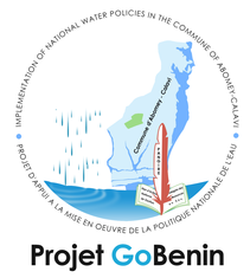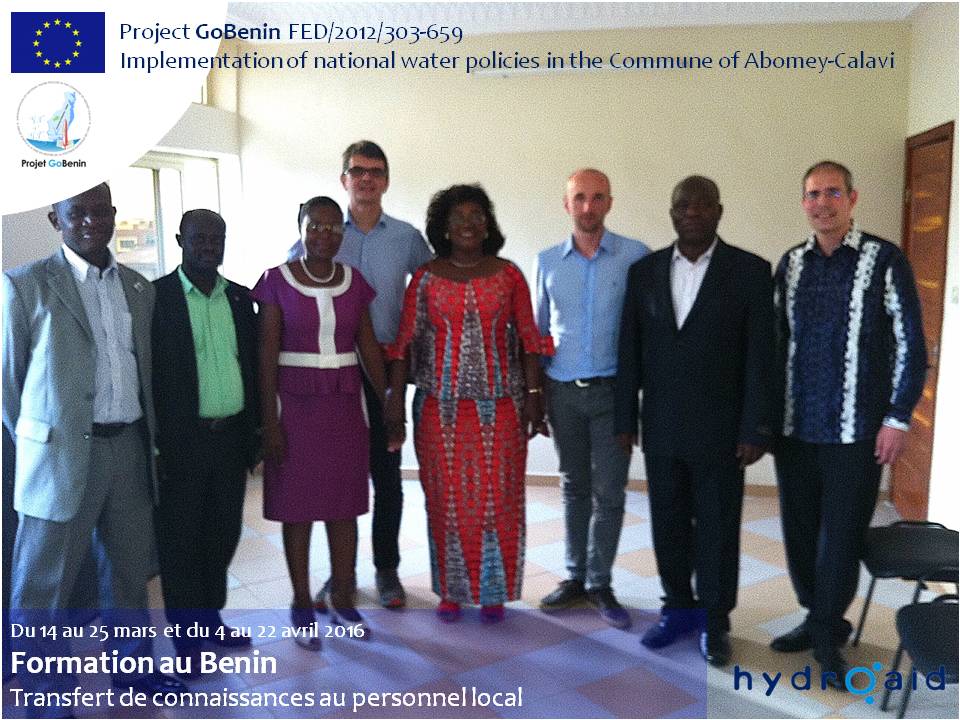 The training activities scheduled by the Project GoBenin began on March 14 in Abomey-Calavi. 23 beneficiaries - managers and technicians - will attend on-site training for 5 weeks to strengthen their knowledge on water basin and district planning, analysis of water demand, water supply and drainage systems, QGIS for water resource monitoring, water treatments and uses. The training session in Benin will be followed by 8 traineeships in Italy for technical staff empowerment on the topics of water infrastructure, lab analysis for water quality, production and management models shared from the Italian experience. Benin is currently going through a broad transformation process of the water sector: new needs impose a modernization of the services based on the revision of national strategies for rural and urban water management. The town of Abomey Calavi, located in the outskirts of Cotonou, is characterized by dynamic growth trends in terms of economy and demography, favored by its geographical location and natural assets, which are likely to modify its traditional organization. These are the premises of the Project GoBenin, which has the general objective of contributing to the promotion of a better and effective management of water resources for all uses by transferring knowledge and sharing experiences in support of the social and economic development of the local population. The core of this initiative draws from the recognition that water sustainability depends on its correct management, conservation and planning. The project aims to facilitate the definition of a feasible local framework for water governance through the production of guidelines on the optimization of water needs in each sector. In this process, training local technical staff and decision makers represents the element of sustainability that Hydroaid strives to set in action. Investing on inclusive approaches as a focus, all institutional and non-institutional stakeholders have been involved, together with the local community and their representatives, from the critical analysis of the state of local water resources in Abomey Calavi to the proposal of actions for the improvement of their management system.
The study of the context and the pressures influencing water availability reported that it is extremely unlikely that the increasing water demand can be tackled by specific solutions. Future policies and decisions should rather be oriented to the optimization of the uses of water resources in an integrated perspective, especially in non-agricultural sectors, so that sufficient amounts will remain available for ensuring the security of food production. The water-food-energy nexus is now at the centre of political agendas and balancing priorities represents the highest responsibility of decisions makers. This is why the training model designed by Hydroaid is based on the direct application of the transferred know-how and empowers the involvement of local partners and beneficiaries, who are not only called to contribute to the improvement of the local water system but also expected to take on increasingly central roles for the dissemination of the acquired knowledge. This is the principle of the training-of-trainers methodology where beneficiaries become the front-row operators of a development process, thus creating a pool of professionals for the public sector that constantly contribute to expanding the reach of the Project impacts. Targeting beneficiaries in an effective way was critical for this purpose and functional to addressing all local interests and needs, stimulating participation and sense of project ownership that ultimately facilitate the realization of any cooperation effort. The Project also includes the realization of a technical manual for local technicians and administrators and a set of participative actions and a Water Forum with the involvement of stakeholders from Benin and Italy to share experiences and proposals for collaboration in the water governance. Thanks to the strong decentralization of the country, the Project is able to operate directly with the authorities that are responsible for local services - the Town Municipality - and to engage them in a path of dialogue and innovation oriented to the resilience of the water sector in conditions of environmental vulnerabilities and massive growth. Benin has made great advancements in the field of water planning, but the introduction of new techniques, models and tools for measuring, monitoring and managing water is crucial. In doing so, the Project is expected to produce long term impacts on social and economic conditions through the improvement of the different uses of water resources - agriculture, energy, production and domestic uses. Other resources: Official project website La nation: Sergio Galletta - Former les cadres et techniciens des pays en developpment
0 Comments
Leave a Reply. |
Archives
April 2024
Categories |
Location
|
Contact Us
|


 RSS Feed
RSS Feed